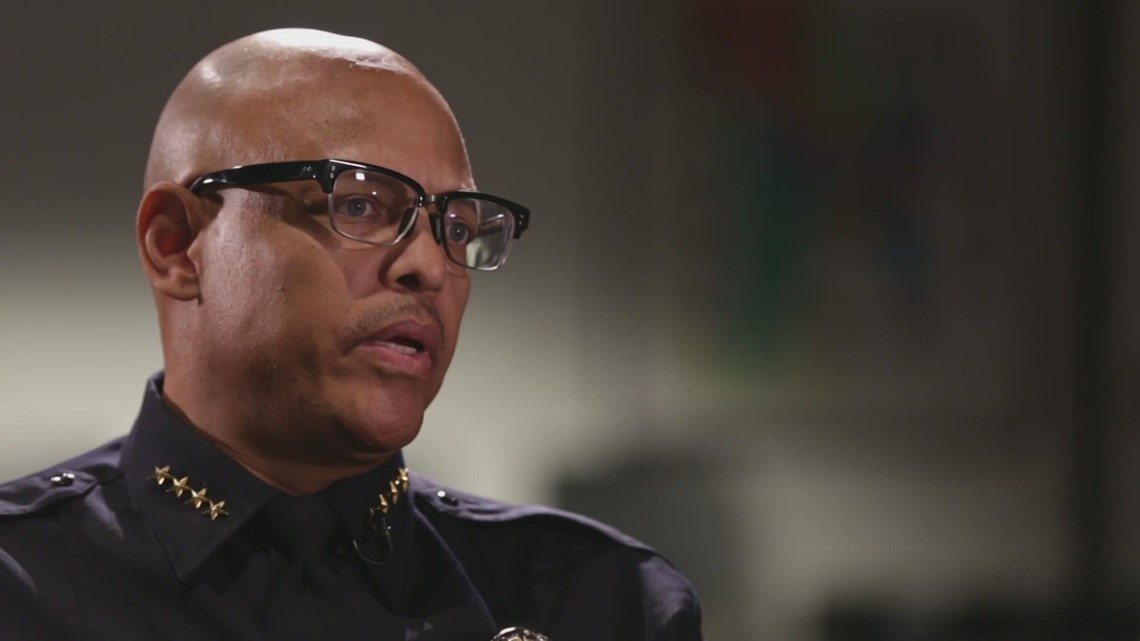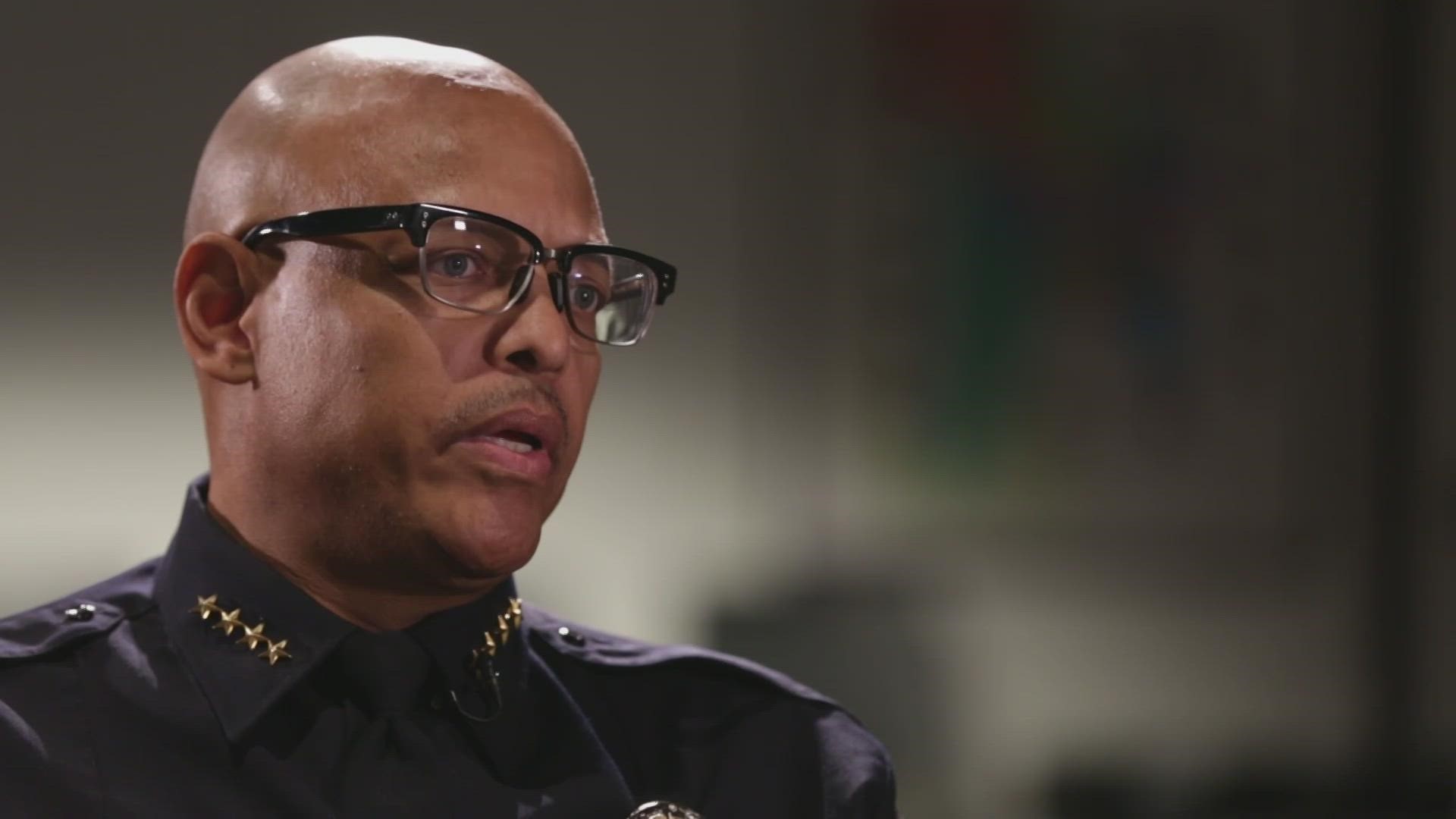DENVER — As the Regional Transportation District (RTD) moves to create a paid fare area for transit riders at Union Station, the chief of the agency’s police department suggested more of the agency’s system needs similar treatment to ensure people at transit stations are paying customers.
“We engage in something in policing called Crime Prevention by Environmental Design,” Chief Joel Fitzgerald said in an interview with 9NEWS this week. “Part of it is, are your paying customers dealing with other paying customers from the beginning.”
“If you don’t allow, from the very beginning, people to go past a certain point that is a paid fare area, those types of situations can reduce the amount of crime and can really limit the access that criminals have to people who are just trying to enjoy a safe transit environment.”
> Watch the full interview with Fitzgerald
Fitzgerald is pitching the RTD board a plan to triple the headcount on the transit agency’s police force by the end of 2023 – from 22 officers currently to 70. A presentation he’ll give on Wednesday evening also points out some infrastructure changes the agency has made in response to a peer review of the system’s security weaknesses.
According to that peer review, a third of RTD customers surveyed in 2021 said they had experienced a situation where their personal safety was at risk when riding. People surveyed said their safety concerns centered around disruptive people, experiences with the transient population on trains, incidents at stations and stops and incidents at night.
In response to direct concerns in the review about Union Station, RTD installed better lighting in the bus concourse, where drug use and other crime prompted increased security last winter. The agency also added monitors to show that security cameras are recording.
“Part of it is mere presence,” Fitzgerald said. “And it goes back to making sure that you have safety presence, whether it be police, whether it be some security, or whether it be having good audio and video, and that the environment seems to that person that intends to do something wrong, that you're being watched.”
The transit agency is currently in the design phase of creating a paid fare area, similar to transit systems in bigger cities like New York or Chicago, where fare-paying customers have to provide proof of fare to move into the waiting area for buses and trains. Fitzgerald said the agency is currently planning on creating similar infrastructure elsewhere.
“A big part of what our plans are for RTD insofar as public safety is ensuring that the transit environment is locked down,” he said. “It goes back to, can you go to the airport and just walk through to a gate without going through TSA? We've all become accustomed to this environment. But it seems like in public transit, people don't want to accept some of the changes that we've accepted over the last 20 years as being just par for the course and to maintain a secure environment.”
Most of RTD’s train and bus stations are completely open, allowing anyone with or without a ticket to approach buses and trains. Infrastructure changes to close off access to all of them would likely be costly.


“I can't answer really how much money it's going to take to secure this environment,” Fitzgerald said. “At this point, it hasn't come down to a number. But what it's coming down to is a willingness to move in that direction, a willingness to look and see what it's going to cost.”
Fitzgerald’s plan comes on the heels of another video showing a seemingly random attack on light rail. Denver police haven't made any arrests in the case of four men who wait for another rider to get off the train before punching, kicking and robbing him.
Fitzgerald insists the random attacks don’t present any sort of pattern.
“Unfortunately, we've seen that now in two separate areas in our system. But bear in mind, we're talking 40 cities and eight counties,” he said. “And I will tell you that I think your average RTD customer is not the target of randomized attacks by groups of juveniles in our system.”
“Our system is relatively safe. Our system is one that we dedicate resources into. And you may not see a police officer on your train every day or on your bus every day. But that doesn't mean that they're not there. That doesn't mean that we're not watching.”
Have you had an incident on RTD lately or do you have a tip on this or any story? E-mail 9NEWS Reporter Steve Staeger at steve@9news.com.
SUGGESTED VIDEOS: Latest from 9NEWS

